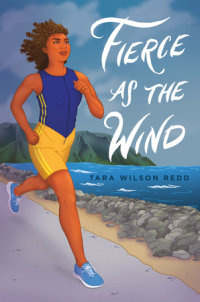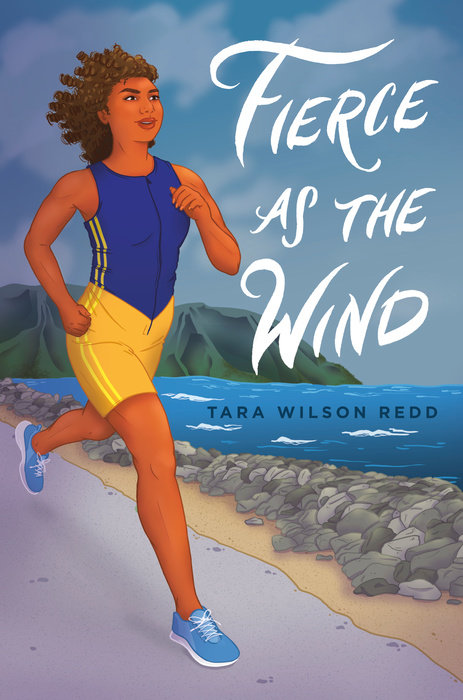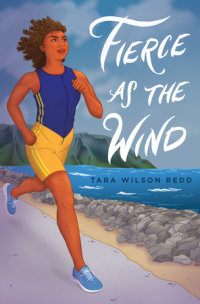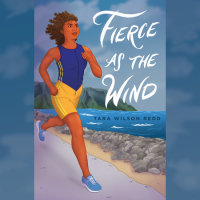chapter one
I am racing. The wind sings in my ears and burns my tearstained cheeks as I fly down the hill on my bike. The sky is starless, moonless, empty. My headlight cuts a yellow circle out of the night ahead of me, just enough to find my way.
There’s a part of my brain that talks when I bike this hard, while the rest of my mind is perfectly still. Tonight, it wants me to notice the palm trees and the brush as my headlight passes over them. Even though I am blinded by rage, I see Van Gogh’s rolling cypress trees in the scraggly branches. The voice remembers how Van Gogh’s ink sketches of those trees look like towering bonfires. The voice sees so much beauty in the world.
But as I skid to a stop, it goes silent.
I’m here.
I steer straight into the bushes, cutting up my legs.
I bunny hop my bike over roots until I’m hidden in the trees. The ground gets sandier, less stable, with fallen branches and trash all over. Even though I’m fighting as hard as I can, my front wheel finally gets caught in a rut too deep to push through, and the bike starts to fall sideways. I jump off before I go down with it.
I find a sturdy-looking tree trunk and chain up my bike. I take off my helmet, hang it on the handlebars. I unstrap my pillowcase full of heartache from my rack. The bungee cord snaps back into my arm, and I let out a yelp. I sling the pillowcase over my shoulder.
On foot, I break through the trees out onto the beach. My pillowcase is stabbing me in the back as I make my way toward the oil drum down on the sand. I shift my cursed load. My legs are on fire from cranking over here, and I can’t catch my breath.
I stop when I get to the oil drum, the only thing on this stretch of beach. I drop my pillowcase in the sand. I wipe the sweat from my eyes and I check my phone. Still no answer. My last seven text messages form a column on my side of the conversation. I clench my teeth and slide my phone away so I can turn the pillowcase upside down into the oil drum.
Most of what he gave me over two years was paper: books, notebooks, an occasional postcard. Everything else was digital. We spent two years together in WhatsApp and Snapchat. We rode wolves across the wild pixelated fields of Eldritch Codex, controllers in hand, me and my partner in crime. We were miles apart but always together. But it was the books I treasured. The books were really him. I dump in his copy of Van Gogh’s letters, illuminated by his commentary in the margins, his chicken-scratch thoughts in French and English, in Latin and Greek, connections only he could have made. Into the drum go the novels, the sketchbooks and Moleskines he inscribed to me, every bookmark and every poem and every bit of mail from abroad. I dump in every Post-it note I saved because his handwriting was precious to me.
Even paper drenched with tears burns when you squirt a full container of lighter fluid over it. I scream as I shake every drop from the bottle. I reach into my pocket and . . .
And . . .
I don’t have a lighter.
It’s the middle of the night, but I jump back on my bike and ride the full twenty miles back to the Trailer Park. The wind is against me now and it takes forever.
My house isn’t actually a trailer, but it squeaks like one. I try to silently swing open the front screen door. It screams like it always does.
Achilles gallops out from his post in my room, thundering down the hall past my dad’s bedroom. I raise a finger to my lips, holding my hand out flat and willing the word “Stay” into his defective Shiba Inu consciousness. Achilles has three-fourths the number of legs of a standard-issue dog, and one-fourth the brain. I pray he is in a listening mood.
He sits, cocks his head at me, and watches as I slide open the kitchen junk drawer so smoothly that nothing inside it moves. I withdraw a book of matches that reads “Uncle Tua’s Pizzeria” without touching anything else in the drawer. I can see the long grill lighter buried in the bottom, but there’s no way I can reach it without disturbing approximately a million keys that open nothing. Jeez, Dad, I think. How do old people accumulate so many dead batteries and keys?
Achilles is looking at me like he thinks I’ve been hiding his long-lost pink tennis ball in that drawer all along, holding out on him. I keep my hand up, but he’s losing patience. He starts to whine, hopping around, bouncing back and forth on his one front leg.
“Down, Achilles!” I whisper-shout. In reply, he barks louder than you would think possible for such a small dog.
I stand absolutely still, one foot hovering aloft as I wait.
“Aki-chan!” growls my dad from his room in the back. Achilles goes running off to appease his real master. As Dad is grumbling at the dog, I back my way silently to the door.
And then I am gone, racing away.
Without a giant pillowcase, it only takes me an hour or so to ride back, even in the dark. The wind is with me again, pushing me forward.
As I chain my bike up, I wonder how many miles I’ve gone tonight. I’ve always wanted one of those bike computers that tells you your distance, your pace, but I’ll never be able to afford one. I know these roads so well, though, I can guess: over a hundred, racing from truth to truth, discovery to discovery. I’m so full of adrenaline I can’t even feel the miles.
That’s almost far enough to loop the whole island and end up right back where I started: a snake eating its own tail. Ouroboros, my brain helpfully suggests. He wrote a paper on that symbol and its use in different cultures for his history term paper last semester. I proofread it.
I stop. I look at my phone. Still no reply.
He’s not going to answer me. Two years, and I don’t even get an explanation?
I head down to the beach, fighting back the tears.
My oil drum is untouched. I look down. I see how one of his books spreads open and crumples, the way the rust looks on the inside of the oil drum, tracing the ribs of it, eating away holes. That book sitting in a rusty oil drum says everything about this night. That’s the only way I could ever explain what this feels like: by putting it into colors and lines. And I want so badly to show someone what I see, because what I see is what I feel.
Except, the someone I want to show everything to is the whole reason I’m out here.
I turn away from the oil drum, my eyes on the ground. My sneakers.
He got them for me at the Van Gogh Museum, printed with the moody blues and yellows of Wheatfield with Crows.
I sit down in the sand and yank them off. I leap up and dangle them over the oil drum. They spin from their laces.
I will my hand to let go, but my hand won’t do it.
“Let go,” I say out loud. It takes all of my strength to open my fist and let them drop. As they land on the pile of books and papers, it should sound like a volcano. But it sounds like what it is: a pair of cheap sneakers being thrown away.
I pull out the matches. My hands are shaking as I light one, carefully guarding its tiny flame from the wind. I drop it into the oil drum and watch everything burn.
chapter two
Even in permadamp Hawai’i, my California roots won’t let me walk away from the fire until I’ve drowned it dead with seawater, which I have to carry up to the oil drum in one of the plentiful discarded beer cans on the beach. By that time, I’m exhausted. Without shoes, it’s a long way back to my bike, picking my way through the trees. I’m almost calm as I walk toward the headlight. I stow my lock and make my way patiently to the road with my bike over my shoulder, walking carefully on the uneven ground.
Back on the gravel path, I can tell something is wrong with my bike as soon as I set it down. I pop off the headlight to look at the wheels.
Both flat. Completely flat.
I lock my bike up and hide it in the trees as best I can. I have a spare tube, but not for both tires. I’m stuck.
I take out my phone.
My fingers automatically pull up his contact, like muscle memory. If I told him I was alone in the middle of the night on a deserted practically-made-for-murder road, would he come and get me? Is he even getting these messages?
I want so desperately to text him: message eight on my side of the column. But I know in my heart that even though on Wednesday he told me he loved me, and on Thursday he kissed me goodbye, today is the first Friday of forever and he is a ghost.
As of today, he’s gone back to the person he always cared for.
He might have even known he was leaving me yesterday, I realize. Maybe even the day before. Maybe he’s known for weeks and he kept on lying so I would keep sleeping with him. I’ll probably never know how far back the lies go. Even my heart is cringing. How could I be so stupid? How could I not see?
I scroll away from his number. I text X to come get me. He’ll be up before dawn. He has to get up at four a.m. our time so his mentor at Google in California can talk with him once a week at seven a.m. before work.
X won’t see the message for three hours. He won’t be free for four. I hit send anyway.
The text sits there, claiming it is outgoing, refusing to move.
I look at the bars. No reception.
Typical.
I want to scream.
Now I’m starting to feel it, the hangover from wrath. But I need a ride, and that means getting to a signal. My legs are Jell-O after biking all night. Even so, I start walking toward the nearest town.
An hour of walking feels like days. The streetlights seem to be miles apart. Through some small miracle, I have not cut my feet on anything. At last, I’m on the edge of town, on the beach. All the beaches in Hawai’i are public, even the ones in front of the Disney resort. So even though there’s one of those mega high-rise condo things ruining the landscape, I’m not trespassing. I’m obviously underage, though, so the chances of getting picked up for breaking curfew are high. I need to hide.
Right in front of me, nearly glowing like a resource in a video game that the designers want you to find, there’s a bench on a concrete slab in the sand. Hanging over it, there’s some kind of plastic sheet. When I get close, I see that it’s a banner ad with metal-rimmed holes where it should have been tied to something. Maybe a homeless person used it as part of a tent. Given the lack of homeless people on this beach, it seems likely that they all got rounded up last night. Maybe the cops won’t come back for another sweep.
I sit down and curl my knees to my chest to get my feet off the sand. It’s not that cold out--even February isn’t cold here--but I’m cold, maybe because my clothes are still soaked with sweat from riding. I should be exhausted, but I can’t sleep.
I pull out my phone. Blessed bars, full reception. I resend the text to X. Then I wait, thinking maybe that coward’s last words are downloading from space, and there’s some reasonable explanation I simply haven’t thought of.
Nothing.
There won’t ever be a reply. Somehow, after I burned it all, I just know.
I know I’m making it worse. I can’t help it.
I pull up her Instagram account.
There it is: all the evidence that was too cruel for me to even imagine.
Pictures of her in her marching band uniform with its ridiculous hat, posing with her flute in a gaggle of girls. I know that field. I made out with him under the bleachers where she is standing. Pictures of her at swim practice. Pictures of her on her bike. Pictures of her in running shorts. Pictures of her with comically large medals on one of those stage things with three heights, or maybe she is tiny, waving like a beauty queen. #swimbikerun #fitfam #girlswhotri #imtraining. Three hundred likes. Twenty-seven comments telling her how cute she is in her sports bra.
Pictures of Hawai’i. Her Hawai’i is the Hawai’i of postcards. Pictures of her year abroad in Japan last year. Pictures of her cat. Pictures of hiking, of Europe, of her college acceptance packet full of confetti. Pictures of her and her friends.
He’s there and he’s not. He’s there, a pair of Sperry Top-Siders on the edge of the pool at her swim meet. He’s there, a pair of crossed arms sitting across from her marching band hat at Starbucks. He’s there, holding the camera. He’s always just out of frame.
I don’t like to be in pictures. Neither does he. I only have one picture of us together: it’s his feet in his ratty blue high tops and my feet in my Van Gogh sneakers. I took a picture of our feet when we were standing so close he had to wrap his arms around me so I didn’t fall backward, my phone wedged between us. I look at that picture now and I remember exactly how he smelled, how the sun felt on my hair, how I could feel his heart beating. I never take photos because they never feel like the moment they were taken. I can’t make a picture talk the way I can make paint talk. But that one, it speaks.
I want to delete it, but I’ve destroyed so much tonight. My fingers won’t do it. Besides, even though I hate myself for it, I want that picture. It’s the only one I have.



